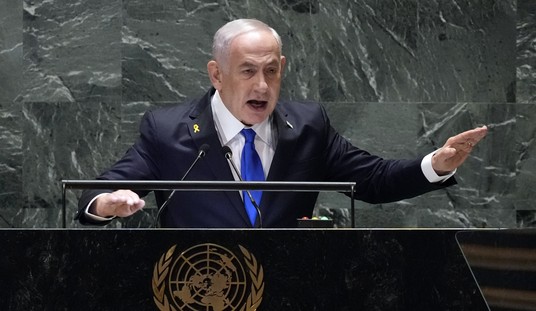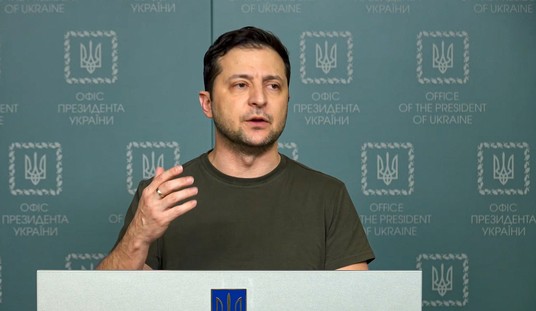 As a general rule of thumb it doesn’t hurt to have money. Maybe it can’t buy you love, but it’ll purchase any number of apologists. The Quadrant Magazine describes how the the academic field of terrorism studies is slowly turning into an enterprise to make it disappear. Some Australian universities receive large amounts of money from Saudi Arabia to study Islamic extremism. Unsurprisingly some academic programs have concluded that “Islamic extremism” is just another word for Western bigotry.
As a general rule of thumb it doesn’t hurt to have money. Maybe it can’t buy you love, but it’ll purchase any number of apologists. The Quadrant Magazine describes how the the academic field of terrorism studies is slowly turning into an enterprise to make it disappear. Some Australian universities receive large amounts of money from Saudi Arabia to study Islamic extremism. Unsurprisingly some academic programs have concluded that “Islamic extremism” is just another word for Western bigotry.
Griffith University’s Centre of Excellence in Policing and Security is notable for its staff’s lack of relevant experience, and its director was criticised for her naive comments about terrorism studies (“‘Science’ in terror plan”, Australian, May 9, 2007). It’s also located in the same faculty as the Griffith Islamic Research Unit, whose head, Dr Mohamad Abdalla, is an associate investigator at the centre. Dr Abdalla, who was born in Libya and lived in Jordan before coming to Australia, was recently the focus of public concern when it was revealed that Griffith had “practically begged the Saudi Arabian embassy to bankroll [the unit] for $1.3 million, even telling the ambassador it could keep secret elements of the controversial deal” and that Griffith would be happy to “discuss ways” in which the money could be used, further fuelling fears that the unit would be used to promote Wahhabism, the sectarian form of Islam that is the Saudi state religion and a major ideological influence among Islamist terrorists (“Top uni ‘begged’ for Saudi funding”, Australian, April 22, 2008). In March 2008 the unit hosted an international conference, “Challenges and Opportunities for Islam and the West—The Case of Australia”, at which the Saudi ambassador made the opening remarks and the keynote speaker was the highly controversial Islamist ideologue Tariq Ramadan, whose US visa was revoked by the State Department in 2004 after it concluded that his actions provided material support to a terrorist organisation.
The Griffith situation provided another illustration of the scale of the problem in this vital field of study, when the vice-chancellor, Professor Ian O’Connor, became involved in defending the university’s abject pursuit of Saudi funding, revealing an abysmal understanding of the nature and history of Wahhabism in a published article, substantial parts of which were lifted directly from the internet site Wikipedia (“Uni chief lifted Islam text from Wikipedia”, Weekend Australian, April 26–27, 2008). An ABC journalist also revealed that O’Connor’s principal policy adviser had told him that because Australia’s universities followed the Christian calendar and observed the Christmas and Easter holidays they were not secular institutions, and that because the public has “no objection to the ‘Christianisation’ of our universities, we could hardly object to attempts to ‘Islamify’ them or any other aspects of Australian life” (“No defence for ignorance”, Weekend Australian, April 26–27, 2008). The principal policy adviser to the vice-chancellor of a major Australian university with a high profile in both Islamic studies and terrorism studies said this!
At Monash University, the new Global Terrorism Research Centre offers a Master of Counter-Terrorism Studies aimed at law enforcement, defence and diplomatic personnel. Regrettably, the centre’s major contribution to the terrorism policy debate has been a study, Counter-Terrorism Policing and Culturally Diverse Communities (2007), which has been criticised by counter-terrorism experts for its one-dimensional, multiculturalist advocacy of passive “community policing” (Allon Lee, “Counter-Terror Contretemps”, AIJAC News & Articles, June 24, 2008). It advocates the pursuit of values like “building trust, rather than … gathering intelligence”, and alleges that “crude forms of racial profiling [which] unfairly target communities as inherently suspect” have “taken root” in counter-terrorism in Australia. It even advocates “the flow of terrorism-related information … from police to communities”.
Saudi money combined with the Leftist predominance in academia and the media has created a tremendous synergy. And as the MSM’s financial fortunes begin to dwindle, the temptations are bound to grow. Synergistic opportunity is another word for “you scratch my back, I’ll scratch yours.” And that always feels good. Taken in combination it has opened a window of opportunity to shove the most reprehensible ideas straight down the throats of public. Change is definitely coming. But what kind of change? There’s the rub.










Join the conversation as a VIP Member